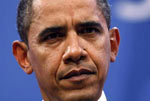 Reuters: U.S.-led efforts to curb Iran’s nuclear program have resumed since President Barack Obama’s re-election and include preparation for possible military action, a senior Israeli official said on Tuesday. By Dan Williams
Reuters: U.S.-led efforts to curb Iran’s nuclear program have resumed since President Barack Obama’s re-election and include preparation for possible military action, a senior Israeli official said on Tuesday. By Dan Williams
 JERUSALEM (Reuters) – U.S.-led efforts to curb Iran’s nuclear program have resumed since President Barack Obama’s re-election and include preparation for possible military action, a senior Israeli official said on Tuesday.
JERUSALEM (Reuters) – U.S.-led efforts to curb Iran’s nuclear program have resumed since President Barack Obama’s re-election and include preparation for possible military action, a senior Israeli official said on Tuesday.
The remarks by Vice Prime Minister Moshe Yaalon suggested cautious optimism at prospects for an international resolution to the decade-old standoff with Tehran, though Israel says it remains ready to attack its arch-foe alone as a last resort.
Israeli Prime Minister Benjamin Netanyahu has set out a mid-2013 “red line” for tackling Iran’s uranium enrichment project. The West says this program is aimed at developing the means to build atomic bombs. Tehran denies this, saying it is enriching uranium solely for peaceful civilian uses.
Yaalon told Army Radio on Tuesday that Israel knew there would be no movement on the issue before the U.S. election in November, but had expected a renewed effort after the vote.
“And indeed it has been renewed,” he said.
He cited contacts among the six world powers – the United States, Russia, France, China, Britain and Germany – and Iran about holding new nuclear negotiations, ongoing sanctions against Iran, “and preparations, mainly American for now, for the possibility that military force will have to be used”.
Yaalon did not elaborate. Another Israeli official told Reuters the minister was alluding mainly to recent U.S. military mobilization in the Gulf.
The powers said last week they hoped soon to agree with Iran soon on when and where to meet. There have been suggestions it could happen this month, though January now seems more likely.
But, sounding defiant, Iran’s top nuclear official was on Tuesday quoted as saying there would be no halt to uranium enrichment to 20 percent fissile purity – an advanced threshold alarming foreign negotiators.
ZONE OF IMMUNITY
A former armed forces chief who belongs to Netanyahu’s rightist Likud party, Yaalon questioned Obama’s resolve on Iran during the Democratic president’s first term. By contrast, Israeli Defence Minister Ehud Barak, the lone centrist in Netanyahu’s coalition government, argued in Obama’s favor.
Yaalon is a frontrunner to succeed Barak, who has announced he will retire from politics after Israel’s January 22 election.
On Monday, Barak reiterated Israel’s determination to deny Iran the capability to make a bomb. Israel, widely assumed to have the Middle East’s only atomic arsenal, sees a nuclear-armed Iran as a mortal threat.
The prospect of unilateral Israeli air strikes, and ensuing retaliation by Iran, a big oil exporter, and its Islamist guerrilla allies in Lebanon and Gaza, worries world powers, in part because it could destabilize a fragile global economy.
Speaking to Jewish leaders in New York, Barak acknowledged the limitations of Israeli forces against Iran’s distant, dispersed and well-defended nuclear facilities.
“The Iranians are deliberately trying to create a level of redundancy and protection for their program, what we call the ‘zone of immunity’. Once they enter the zone of immunity, fate will be out of our hands,” Barak said.
“The state of Israel was founded precisely so that our fate would remain in our own hands.”
Barak’s term “redundancy” refers to Israel’s belief that Iran seeks to stockpile raw uranium and enrichment centrifuges on a scale that would allow it to restore independent nuclear capacity should its known facilities be attacked.
Iran’s nuclear infrastructure has been dogged by sabotage, including cyberwarfare. Iran’s Ministry of Communications and Technology Information said on Sunday it had identified a “new, targeted data-wiping malware”. The ministry’s statement did not say what computer systems might have been affected.
While Israel has not publicly claimed responsibility for such incidents, Yaalon said there could be more in store, in parallel to global economic pressure.
“Sometimes malfunctions happen there – worms, viruses, explosions. Therefore this schedule is not necessarily chronological. It is more technological,” he told Army Radio.
“We are, without a doubt, closely tracking developments in the program there, lest they attempt to pass the red line.”
(Additional reporting by Yeganeh Torbati; Writing by Dan Williams; Editing by Mark Heinrich)


